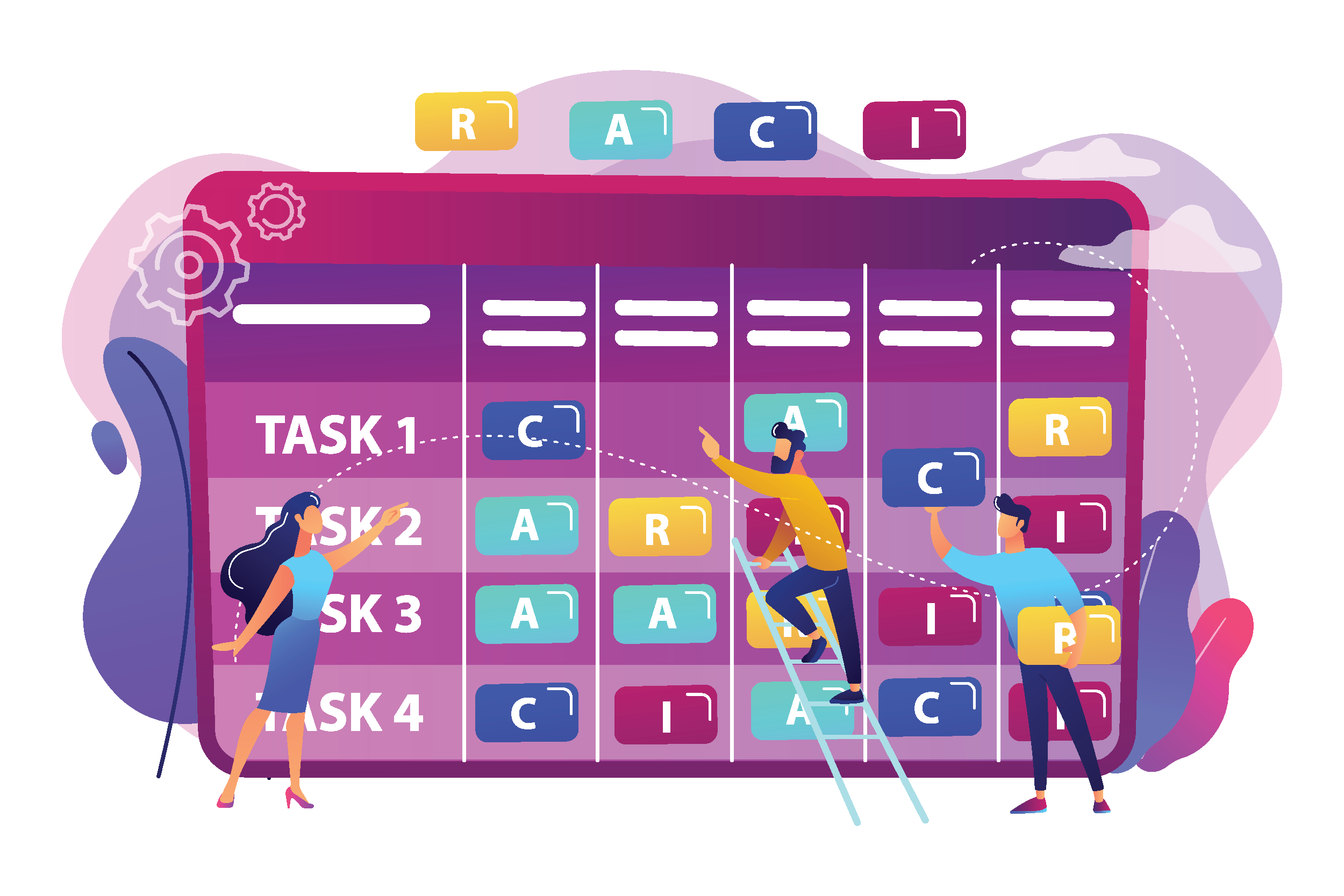Transforming HR practices in small- and medium-sized businesses through AI integration
In the rapidly evolving landscape of modern business, technology has become an essential catalyst for growth and efficiency. Among the transformative technologies, Artificial Intelligence (AI) stands out as a game-changer, revolutionizing various sectors, including Human Resources (HR). In this article we take a look at the profound impact of AI on HR practices in small and medium-sized businesses (SMBs), shedding light on the ways AI is reshaping recruitment, employee engagement and decision-making processes.
Recruitment reinvented
Recruiting the right talent is a cornerstone of success for any business. AI-powered tools are simplifying and streamlining this process for SMBs. Resume screening, historically a time-consuming task, can now be automated using AI algorithms that analyze CVs for relevant skills and experience. Tools like IBM Watson and Greenhouse are leading the way, allowing SMBs to quickly identify top candidates, thereby saving time and resources.
Additionally, AI-driven chatbots are transforming the way businesses interact with potential candidates. These chatbots can handle initial inquiries, schedule interviews and even conduct preliminary assessments, providing a seamless experience for candidates while freeing up HR personnel to focus on more strategic tasks.
Enhancing employee engagement
Maintaining a motivated and engaged workforce is crucial for SMBs to retain top talent and boost productivity. AI tools are providing innovative ways to achieve this goal. Employee sentiment analysis tools, such as Peakon and Glint, utilize natural language processing to analyze employee feedback and gauge overall satisfaction levels. By pinpointing areas of concern, SMBs can take proactive measures to address issues and enhance employee experience.
Furthermore, AI-powered personalization is becoming a norm in HR practices. Learning management systems equipped with AI algorithms recommend personalized training and development paths for employees based on their skills, preferences, and performance. This not only helps employees grow but also aligns their professional development with the company’s objectives.
Informed decision-making
Effective decision-making is at the heart of successful business operations. AI is stepping in to provide SMBs with data-driven insights for strategic HR decisions. Predictive analytics tools like Visier and Workday use historical data and AI algorithms to forecast future trends, helping SMBs anticipate workforce needs and plan accordingly. This proves invaluable when it comes to talent acquisition, retention and succession planning.
Moreover, AI is simplifying complex tasks such as performance reviews and compensation analysis. These processes can be automated, ensuring consistency and objectivity in evaluations. AI algorithms can analyze performance data to determine fair compensation, removing potential biases and ensuring a more equitable work environment.
Ethical considerations
While the benefits of AI in HR for SMBs are substantial, ethical considerations should not be overlooked. AI algorithms can inadvertently perpetuate biases present in historical data, leading to unfair practices. It’s crucial for SMBs to ensure that AI systems are trained on diverse and representative data to avoid reinforcing discriminatory patterns.
Conclusion
In the realm of HR practices, AI is a transformative force for small and medium-sized businesses. From redefining recruitment processes and enhancing employee engagement to providing data-driven insights for strategic decision-making, AI is reshaping the way SMBs manage their human capital. However, embracing AI should go hand in hand with ethical considerations, ensuring fairness and inclusivity.
As business leaders of SMBs, the time is ripe to explore the AI solutions that align with your company’s values and objectives. By leveraging AI’s capabilities, you can unlock new levels of efficiency, productivity and growth, propelling your business into a future where HR practices are more data-driven, personalized, and impactful than ever before.



 If you are like most small and medium sized businesses, getting the most out of your recruitment process is a constant struggle. Resources at your disposal are limited if not non-existent, you may be wasting money on job ads and your time is getting sucked up scanning resumes late at night. So, how do align your business to be sure that you are effectively managing your recruitment processes?
If you are like most small and medium sized businesses, getting the most out of your recruitment process is a constant struggle. Resources at your disposal are limited if not non-existent, you may be wasting money on job ads and your time is getting sucked up scanning resumes late at night. So, how do align your business to be sure that you are effectively managing your recruitment processes?
 Recruitment mistakes can be costly; not only for the recruiter but for the candidate and the hiring company.
Recruitment mistakes can be costly; not only for the recruiter but for the candidate and the hiring company.
 Establishing recruitment metrics is crucial when evaluating your recruitment team’s performance and creating effective sourcing strategies. There are countless metrics one could consider so it is important to focus on those that align with your organization, recruitment team and client needs.
Establishing recruitment metrics is crucial when evaluating your recruitment team’s performance and creating effective sourcing strategies. There are countless metrics one could consider so it is important to focus on those that align with your organization, recruitment team and client needs.
 Today, employees have the freedom to choose the work they do and most are drawn to environments that keep them engaged.
Today, employees have the freedom to choose the work they do and most are drawn to environments that keep them engaged. 
 In a competitive job market, it is essential to know how and where to market your personal brand. Hundreds of applicants are applying to jobs on a weekly basis, making it is easy to get lost in the mix. We’ve found the best ways to give you a unique edge when applying for jobs and how to have the jobs come to you using LinkedIn.
In a competitive job market, it is essential to know how and where to market your personal brand. Hundreds of applicants are applying to jobs on a weekly basis, making it is easy to get lost in the mix. We’ve found the best ways to give you a unique edge when applying for jobs and how to have the jobs come to you using LinkedIn.
 Did you know that the average internet user has more than 5 social media accounts?1 The passive candidate is typically not online looking on Indeed and LinkedIn for a job, but they are updating their Facebook status. Social media sites are a focus for online interaction, so why not use them to find your next superstar candidate?
Did you know that the average internet user has more than 5 social media accounts?1 The passive candidate is typically not online looking on Indeed and LinkedIn for a job, but they are updating their Facebook status. Social media sites are a focus for online interaction, so why not use them to find your next superstar candidate?
 Most people can unfortunately recall a situation where they started a new job, excited about the role and company, only to find their first day to be less than exciting. Their assigned computer was not set up in advance; they have to spend hours in a room by themselves to read and complete the requisite HR paperwork; they are only introduced to whomever’s around; they are given a cursory overview of what’s expected of them and then they are left to sink or swim. Employees who experience such an unwelcoming onboarding process have a greatly diminished likelihood of being successful, while also increasing the probability they will leave within the first few months. Revisit our previous blog, What Does Employee Turnover Cost? to see what risks you’re taking with a poor onboarding process.
Most people can unfortunately recall a situation where they started a new job, excited about the role and company, only to find their first day to be less than exciting. Their assigned computer was not set up in advance; they have to spend hours in a room by themselves to read and complete the requisite HR paperwork; they are only introduced to whomever’s around; they are given a cursory overview of what’s expected of them and then they are left to sink or swim. Employees who experience such an unwelcoming onboarding process have a greatly diminished likelihood of being successful, while also increasing the probability they will leave within the first few months. Revisit our previous blog, What Does Employee Turnover Cost? to see what risks you’re taking with a poor onboarding process.
 How many times have you seen hiring managers settle for a bad hire when hiring in this market of high demand and fewer actively seeking resources? Logically, they know they need a great resource but they choose to hire an under-qualified referral or the first available applicant to quickly fill a gap or timeline rather than finding the right candidate. You wouldn’t buy a bicycle and expect the performance of a motorcycle so why would you hire a Manager of Operations that is missing critical skills to meet the demands of your COO opening?
How many times have you seen hiring managers settle for a bad hire when hiring in this market of high demand and fewer actively seeking resources? Logically, they know they need a great resource but they choose to hire an under-qualified referral or the first available applicant to quickly fill a gap or timeline rather than finding the right candidate. You wouldn’t buy a bicycle and expect the performance of a motorcycle so why would you hire a Manager of Operations that is missing critical skills to meet the demands of your COO opening?
 Preparing for a job interview can be stressful. Recruiters are so familiar with the process that it can be easy for them to forget that most candidates are not. How to interview practically becomes second nature to those working in this field and too often we assume that we don’t need to go over some of the basics.
Preparing for a job interview can be stressful. Recruiters are so familiar with the process that it can be easy for them to forget that most candidates are not. How to interview practically becomes second nature to those working in this field and too often we assume that we don’t need to go over some of the basics.